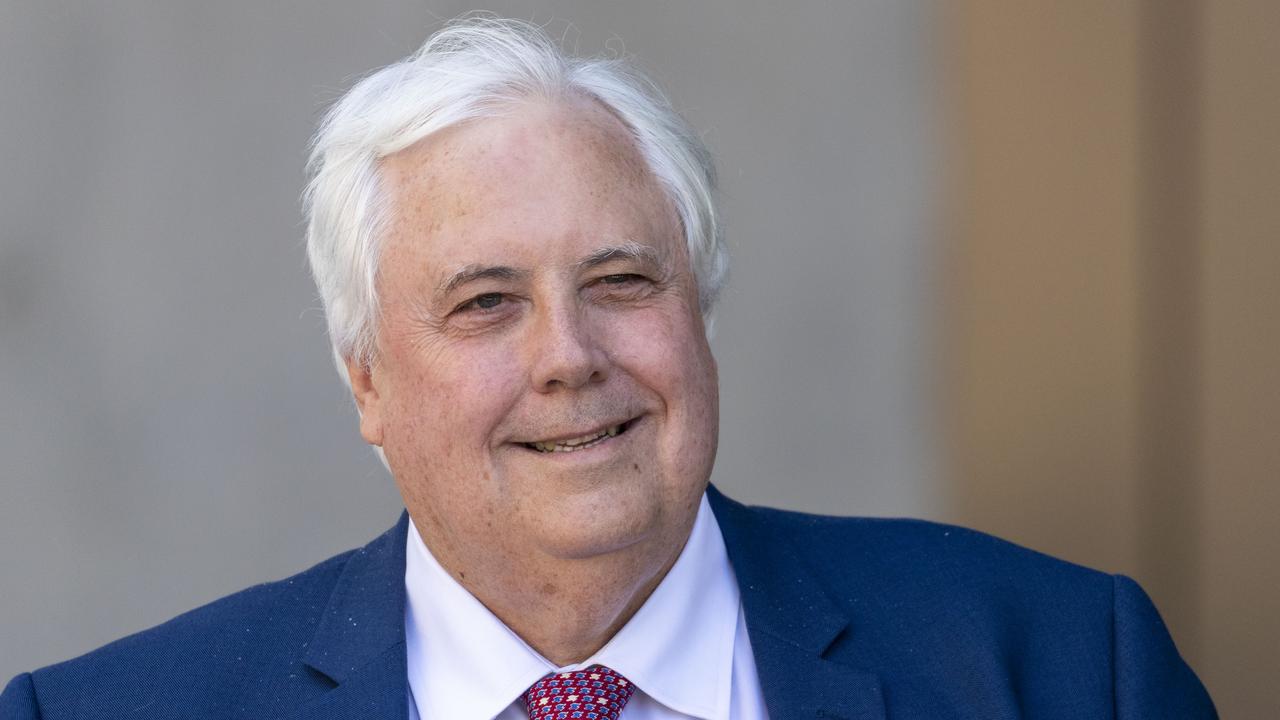Clive Palmer knew he spent too much, court told
CLIVE Palmer knew he was forbidden from spending more than $12m of Chinese cash on himself but did it anyway, a court has heard.

CLIVE Palmer knew he was forbidden from spending more than $12 million of Chinese cash on himself and his quest for political power but did it anyway and then “hastily” tried to cover up his misappropriation, a court has heard.
Queensland Supreme Court judge David Jackson late yesterday adjourned the civil trial in which the Palmer United Party leader is defending allegations of fraud and dishonesty levelled by his Chinese business partners, Citic Pacific.
Citic’s barrister Andrew Bell SC used the resources tycoon’s decision not to testify to urge Justice Jackson to rule against Mr Palmer and infer he acted dishonestly, rather than making an honest mistake, when he made the $10m and $2.167m payments in August and September last year.
The PUP leader will now be forced to wait until next year for the judgment — a ruling that will be keenly watched by West Australian police, who have launched a preliminary fraud probe into the contentious payments.
Mr Palmer has repeatedly and strenuously denied any wrongdoing in the battle between the two partners in the huge Sino Iron project in Western Australia’s Pilbara region — his company Mineralogy and Citic.
He claims Citic’s lawsuit is politically and commercially motivated and that the Chinese have failed to pay him $700m in mining royalties.
The federal MP withdrew $12.167m in Citic funds from a Mineralogy bank account — the “Port Palmer Operations” account — which had been established to cover expenses from the West Australian port linked to the iron ore project. Mr Palmer paid $4m to advertising company Media Circus and allegedly “funnelled” $6m through his Cosmo Developments company into the PUP. The crux of the legal conflict is whether the bank account was a trust — as argued by Citic — and whether Mr Palmer “procured” a breach of trust by making the payments. Citic insists the cash should only have been used for port management.
Mr Palmer’s barrister, Simon Couper QC, said the fund was a Mineralogy account and “there is no basis to find monies paid to the administration fund are trust monies”.
He said in order to prove Mr Palmer knew he was procuring a breach of trust, it must be proven that he knew the account was a trust and knew that the money was not Mineralogy’s to use as it saw fit.
The MP’s legal team has urged Justice Jackson not to make findings of fraud or dishonesty against Mr Palmer, arguing that Citic could still achieve its objective — financial compensation — without that ruling.
Dr Bell yesterday continued to highlight what he says is the “powerful” evidence of Mr Palmer’s “dishonesty”: a “Port Management Services Agreement” signed by Mr Palmer in April or May this year, but backdated to June last year.
“This was (a document created) fairly rapidly and in haste to justify what Mr Palmer knew was unjustifiable,” Dr Bell said.
On the trust issue, Dr Bell said a facilities deed, signed by Mr Palmer, stated that the administration fund was only to be used for port management.
Justice Jackson challenged the notion that simply because the deed bore Mr Palmer’s signature, the mining magnate knew every detail of the document.
Dr Bell said Mr Palmer knew the “core elements” of the deed, because he was the sole director of Mineralogy at the time, the port chief executive reported to him, and he was copied in on the port’s budget for last year.
Mr Palmer yesterday issued a media statement accusing News Corp Australia, publisher of The Australian, of biased coverage of the trial. He repeated allegations the court case was a “witch-hunt”.
Justice Jackson yesterday adjourned the trial to a date to be fixed.



